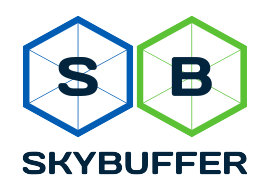The best time to intervene is when you know something has to change. Families should not be waiting to intervene when it is convenient for the substance user. Create a strategy for recovery with step-by-step goals and guidelines. Symptoms of withdrawal if they try to stop for short periods of time. These include physical signs like sweating, seizures, and trouble sleeping.
Recovery Advocacy

Detoxification is not equivalent to treatment and should not be solely relied upon for recovery. Recovering from SUD is possible, but it takes time, patience, and empathy. A person may need to try quitting more than once before maintaining https://centraltribune.com/top-5-advantages-of-staying-in-a-sober-living-house/ any length of sobriety. Many would think that refusal of treatment would be most challenging for the families, and for some, it is. Both outcomes bring their challenges, and we will do our best to explain those challenges below.
Treatment and intervention services
Rather, it must be open for regular revisit and modification (Nelson-Jones, 2014). Discover the perfect therapist who aligns with your goals and preferences, allowing you to take charge of your mental health. Whether you’re searching for a specialist based on your unique needs, experience level, insurance coverage, budget, or location, our user-friendly platform has you covered.
Crisis Responders May Not Know How to Deal With Every Situation
Undertaking systematic reviews is not always necessary because there may be recent relevant reviews available, nor is it always possible in the context of tight resources available to the development team. However, undertaking some review is important for ensuring that there are no existing interventions that would make the one under development redundant. Based on a consensus exercise informed by reviews and qualitative interviews, we present key principles and actions for consideration when developing interventions to improve health.
- Including the right group of people at your intervention is vital to your efforts.
- The best time to intervene is when you know something has to change.
- Providing a stable environment that minimizes stress and triggers can significantly support someone who has accepted treatment, giving them time to heal without enabling substance use behaviors.
- Many chronic diseases,once diagnosed, may not be curable, but they can be controlled by acombination of education/behaviour change interventions, plusregular, often daily, use of pharmaceuticals.
- It can assess risk level and connect clients to services that can help them in the moment.
- Many things can cause this type of spiraling destruction but the main things are substance abuse and mental illness.
How often have you heard an alcoholic or addict say they are of legal age and have the right to do whatever they want? They would be correct in their statement, Sober House and so would the family if they were to say and believe the same thing. Looking above at the definition of intervention, you must consider the task.
From fostering a safe and empathetic space for individuals to explore their inner landscapes to employing evidence-based techniques and strategies, these professionals serve as guides and collaborators in the transformative healing process. One versatile approach is the use of cognitive behavioral therapy (CBT). CBT has been found to be effective in treating various conditions, such as anxiety, depression, and even autism spectrum disorders. Couples therapy is a specialized form of therapy that focuses on improving relationships and resolving conflicts between intimate partners. It aims to help couples identify and address issues, improve communication, strengthen emotional bonds, and develop healthier patterns of interaction.
NIMH Information Resource Center
By recognizing the need for intervention, friends can prompt an addict to consider making positive changes. Working with an addiction professional, such as a licensed alcohol and drug counselor, social worker, psychologist, psychiatrist, or interventionist, can help you organize an effective intervention. An addiction professional will think about what’s going on in your loved one’s life, suggest the best approach, and guide you in what type of treatment and follow-up plan is likely to work best. Experts recommend considering which theories are relevant at the start of the development process.
